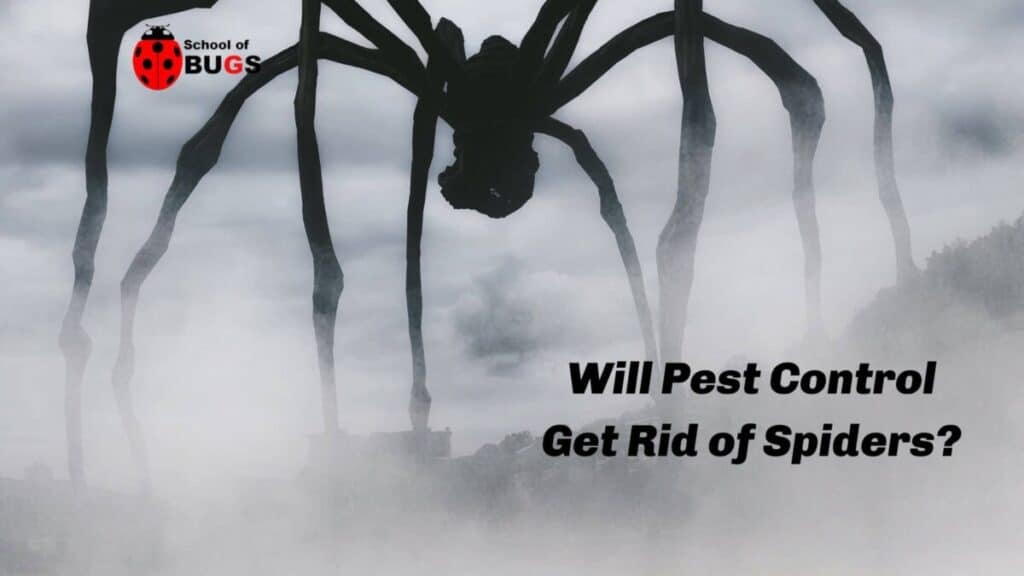
Spiders, from the itsy-bitsy to the creepy-crawly, aren’t a welcome sight in a home. Even if you don’t have arachnophobia, you’re probably not too thrilled about the prospect of sharing space with these irksome insects.
Here’s everything you need to know about spiders and why pest control is the right option for you.
Pest control is an effective solution for getting rid of spiders since pest control experts can identify the species they are dealing with, exterminate any intruders, and apply preventative measures to stop more from entering the home.
The rest of this article will cover the following topics:
- How do spiders enter a home?
- What attracts spiders?
- How do you deal with a spider infestation?
- How does pest control handle a spider infestation?
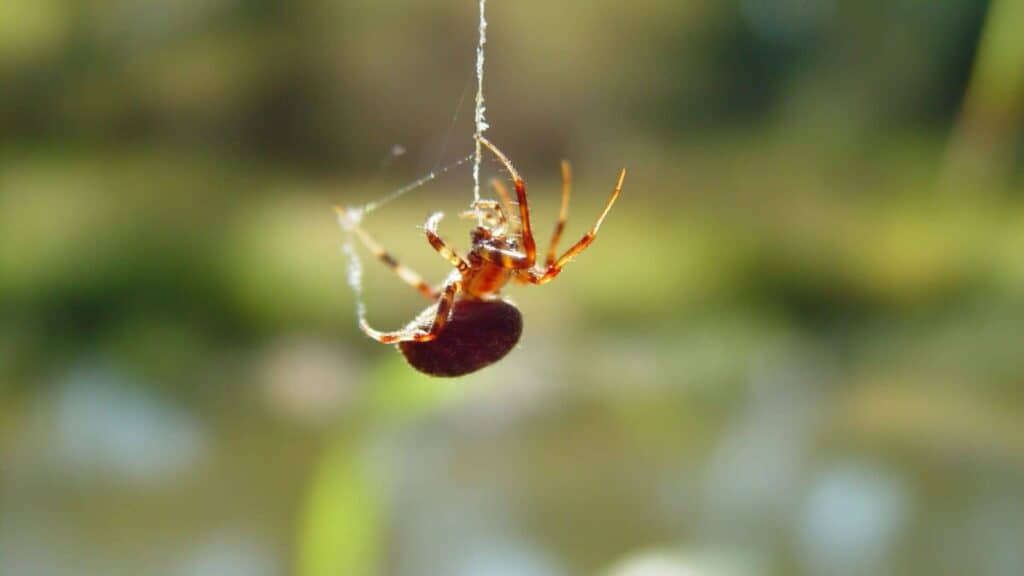
How Do Spiders Get into Your Home?
Spiders, like many other insects, are seeking food, shelter, and warmth. They can enter your home in a variety of ways, including through windows, doors, gaps, and cracks in the structure of your home.
These serve as access points—not just for spiders, but also for a host of other creepy crawlies in the night.
Doors and windows that don’t close properly, worn weather strips, and cracked seals are all prime entry points that can entice a spider to enter your home and make it their own.
Spiders may also hitch a ride on your belonging as you enter the home, including in boxes during a move, on plants, and potentially even on clothing.
Spiders aren’t the only hitchhikers that can get into your home on your personal belongings, so make sure to inspect them before you bring anything inside, especially if you’ve been out on a hiking trip.

What Attracts Spiders to Your Home?
Spiders are always on the lookout for a safe place concealed from prying eyes with access to food sources.
Spiders are carnivorous by nature and are attracted to small bugs in and around your home. Leftover food can attract all manner of insects, which, in turn, attract spiders.
Humidity is another major attractant to spiders. Warm, damp spaces are perfect for laying their eggs, which is why you’ll often see spiders setting up shop in cracks and crevices of a shed, garage, or basement.
A dehumidifier can work wonders in making your home environment not only more comfortable, but also less enticing for many creepy crawlies.
The prospect of shelter is probably the most enticing attractant for spiders. While they may prey on insects themselves, spiders have a lot of natural predators, so finding shelter is high on their list of priorities.
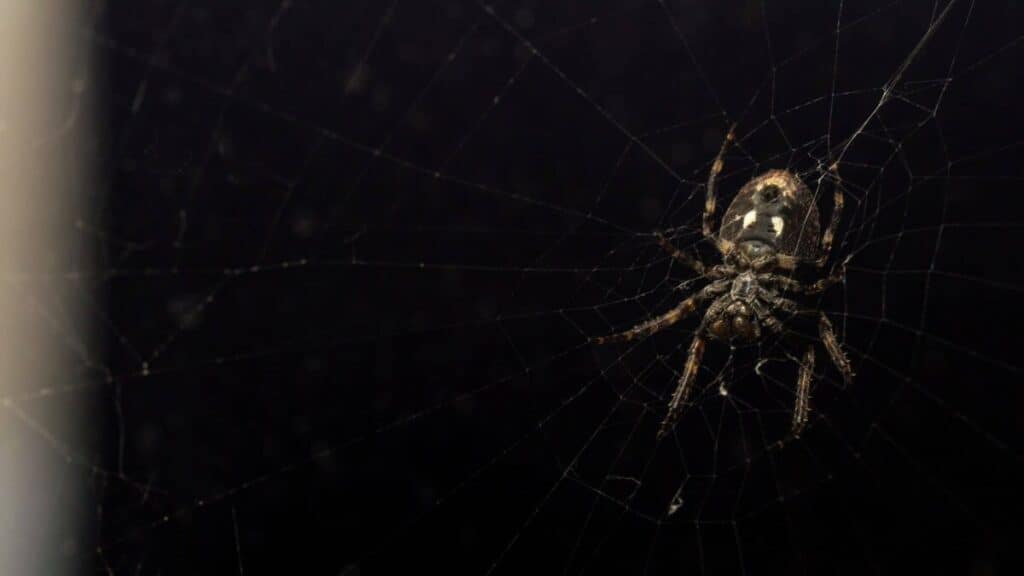
A cluttered closet, storage area, or attic is ideal for spiders because it keeps them away from the foot traffic of humans and gives them a secluded spot to set up their webs.
Quiet, undisturbed locations are prime hiding spots, and a spider will happily live its entire life out of sight, out of mind.
Signs of Spider Activity
Spiders leave a lot of trails of their activity, but if you don’t know what you’re looking for, then you might not recognize the danger these insects pose before someone gets hurt.
The first thing you should be on the lookout for is webs. Spiders create webs to trap their prey, and these silky creations are a telltale sign of spider activity.
You may also see silk sac when you dust or sweep, which is an indicator that a bunch of spiders have recently hatched in your home, spelling an ominous portent.
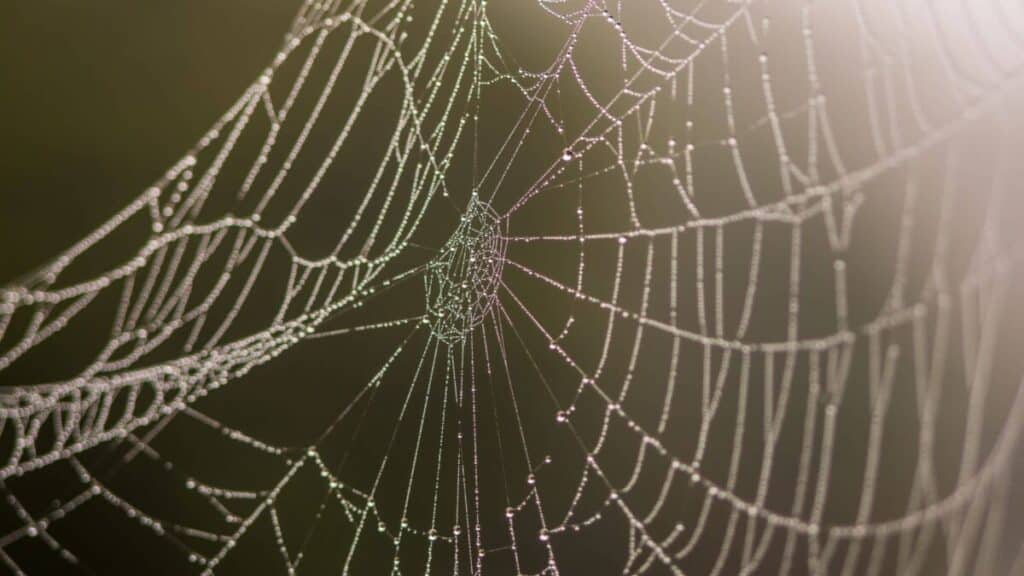
Spider molts are also good signs of spider activity. Just like snakes and cicadas, spiders shed their exoskeletons as they grow, leaving the old one behind in the process.
Check in the corners of your kitchen, bathroom, and garage, as these are the most likely spots spiders love to hide.
The sooner you recognize the signs of spider activity in your home, the sooner you can take action to seal up any access points and, if necessary, get professional help.
Other pests might also be a sign that you have (or are about to have) a spider problem. Flies and mosquitos in your home are not only annoying in themselves, but they also encourage spiders to visit since there’s an abundance of food for them to rely on.
What Damage Do Spiders Cause?
Unfortunately, while spiders aren’t hostile towards humans, they can be extremely dangerous. Nearly all spiders have venom glands used for incapacitating prey.
While the majority of spider bites aren’t toxic to humans, there are a few spiders that like to take up residence in homes that have extremely dangerous, potentially lethal bites.
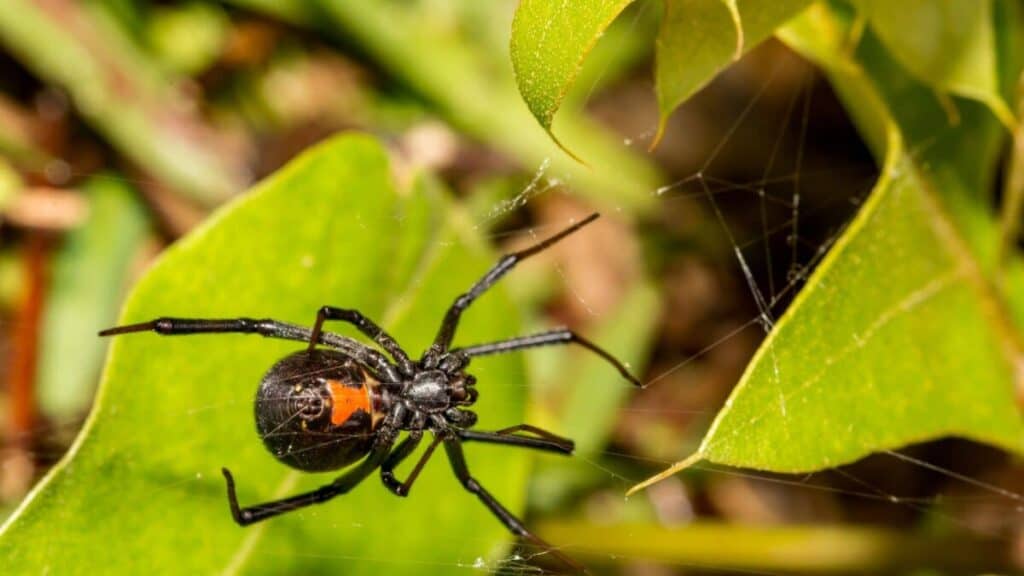
Worse yet, spiders have an uncanny (and somewhat mortifying) habit of secluding themselves in places where humans like to put their hands—under the lip of a mailbox, on the handle of an old Christmas decorations box, in the pocket of an unused jacket.
In light of this behavior, it’s always a good practice to check the handles or interior of anything you haven’t touched in a while, especially if you live in a part of the country that’s prone to venomous spiders.
It’s also why you should take some proactive measures to understand what venomous spiders you might encounter in your area so that you can identify and avoid them, both in the wild and at home.
Taking preventative measures is also important to discourage them from entering your home.
Most people consider spiders as pests, which is a pretty unfair assessment in reality. Outdoors, spiders are some of the best natural pest control agents you can hire.
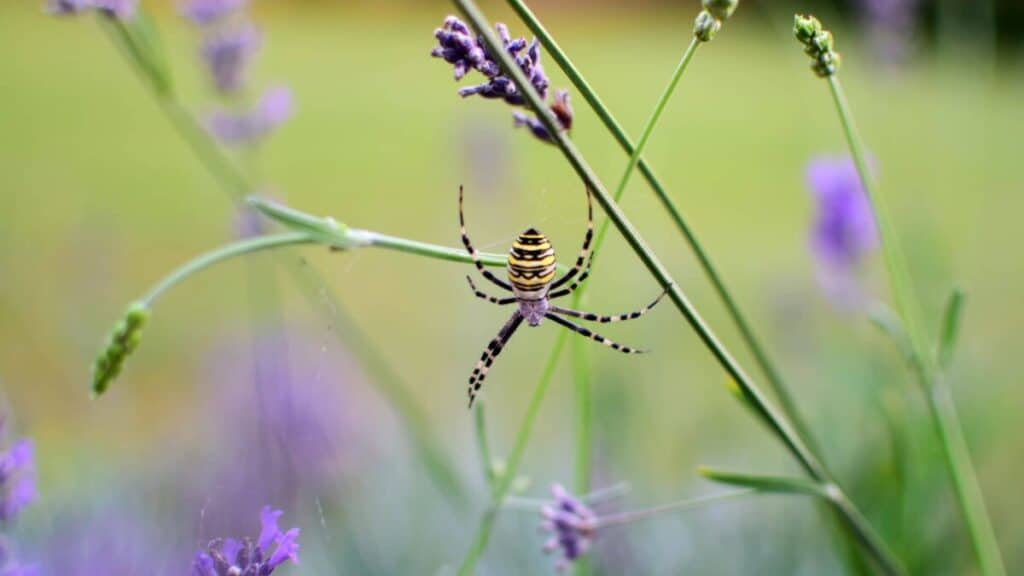
In the garden especially, spiders are active in the early spring right at the start of pest season, handling some of the workload to protect your precious plants.
If a spider is in your garden and it’s not venomous, then leave it be. As long as your home is well-protected, you can view these arachnid allies as your friends, not a pest to be eliminated.
Spiders in the home, however, can pose a hazard to adults, children, and pets, which is why you should enlist the help of a pest control agency and take preventative measures yourself to ward off an infestation.
Steps to Get Rid of Spiders in Your Home
If your home is a haven for spiders, then you might find yourself the unpleasant host to hundreds of spiders should a female lay eggs, anywhere from 50 to 1000, depending on the species.
Cutting down on the likelihood of fostering a spider nursery is a multifaceted challenge:
- Keep your house tidy – A cluttered home is an open invitation to spiders, which is why you should dust, wipe down surfaces, and vacuum regularly.
- Patch any cracks you see – Getting rid of access points will keep your home protected from spiders.
- Apply a commercial pesticide – Cover the exterior of your home in the corners and cracks with a pesticide, killing spiders who cross over it.
- Keep your outdoor lights off – Outdoor lights attract insects, which attract their natural predators: spiders.
What Can a Pest Control Service Do?
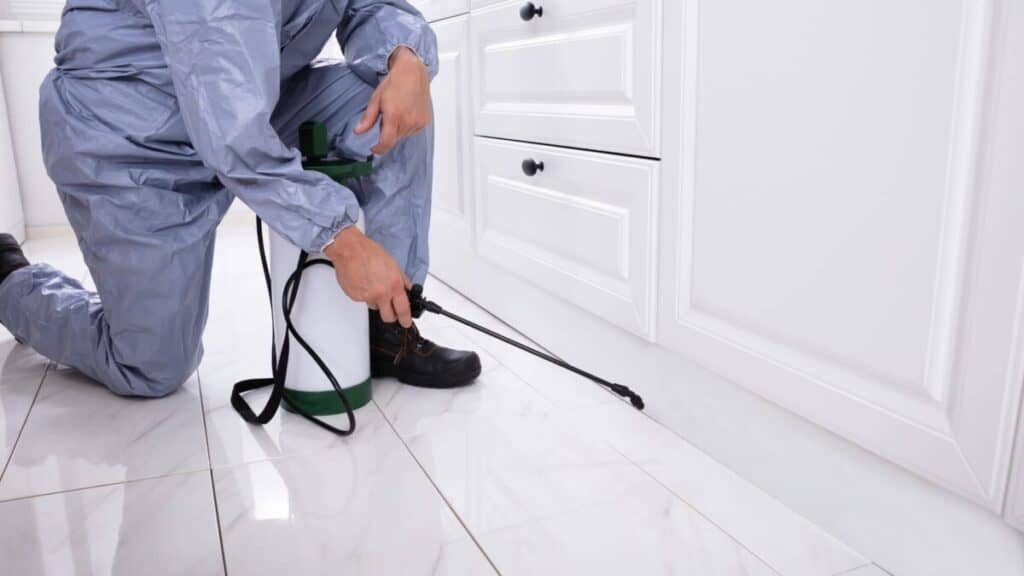
If you’re dealing with a spider infestation and are at a loss in combatting these insects, then a professional pest control service is the resource you need.
Pest control experts have the knowledge, experience, and equipment to treat a spider infestation and prevent any more from entering your home.
It’s particularly important to note that you shouldn’t go messing around with spiders, even if you think you know what species it is.
A lot of extremely dangerous spiders have harmless counterparts, so it can be tough to identify what you’re dealing with.
You certainly don’t want to go swatting them with a newspaper or slipper, since you might only end up angering the spider.
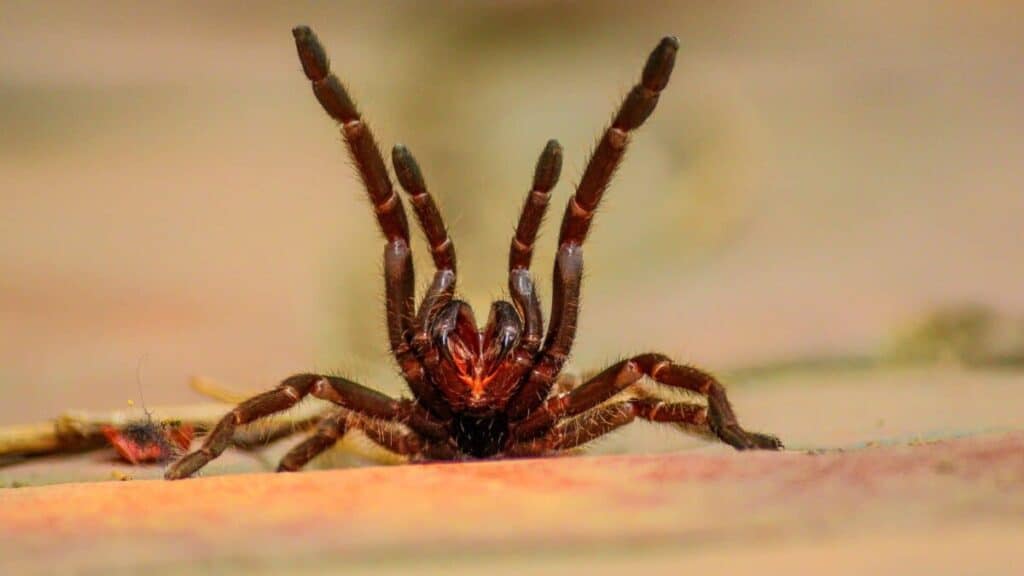
Pest control companies rely on a variety of techniques to get rid of spiders, largely using insecticides to get the job done. These insecticides kill the spider on contact so that it can’t harm anyone.
A spider pest control company may also scour the house from top to bottom for evidence of spider activity and use the humble vacuum to take care of webs, eggs, and adult spiders all at once.
While you can and should certainly go through your home with a fine-toothed comb for spider webs, it’s generally best to leave the searching to the professionals.
Not only do they have the right tools for the job, but they’re also able to identify the spiders readily, making it much easier for them to track down likely locations for their webs and problematic areas around the home.
Final Thoughts
You should almost certainly be taking preventative measures to keep spiders (and other pests) out of your home, but when it comes to dealing with the mystery spider in the corner of the attic, then the pros are definitely the way to go.
Professional extermination not only ensures that potentially dangerous spiders are dealt with quickly, but your local experts can also help you seal up and protect your home from future invasions.
Alright, that’s it for this article, here are a few hand-selected articles that you might also find interesting reads:
Ten Things You Should Know About Spiders10 Crazy Facts About Spiders
Are All House Spiders Female – The Answer WILL Surprise You
Recent Posts
Tiny Black Bugs in Bathroom NO WINGS: What They Are and What to Do!
Finding tiny black bugs in your bathroom can be uncomfortable, to say the least. Especially if they are persistent, or they appear in very large numbers, which they often like to do. When it...
Tiny Black Bugs in Plant Soil - What Are They & What To Do About It
A short horror story: You get a new houseplant. You do your best to take care of it. You’ve ensured that it has the right soil, the right amount of sun, it gets enough water. And then one day, you...

